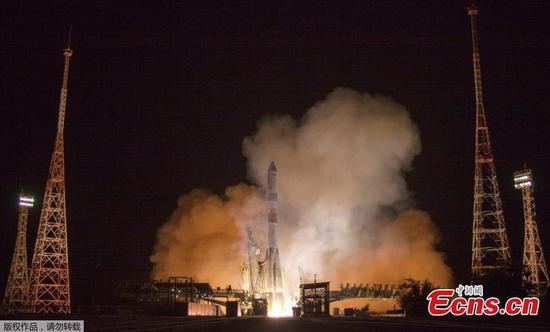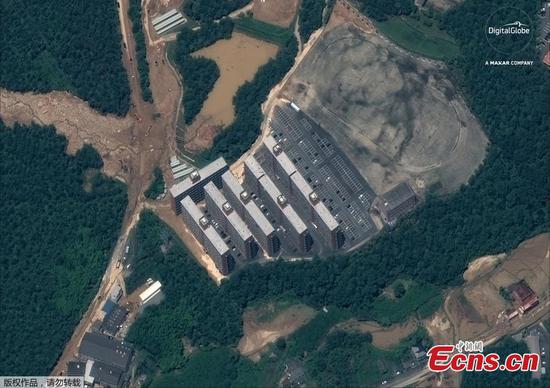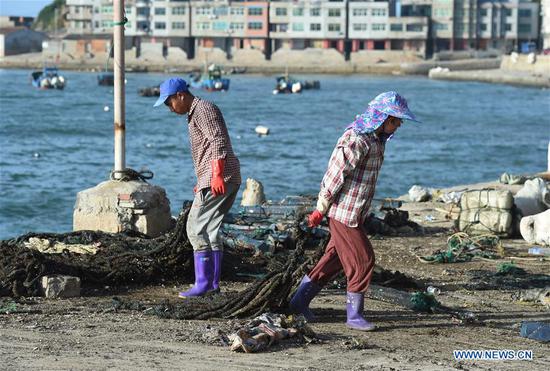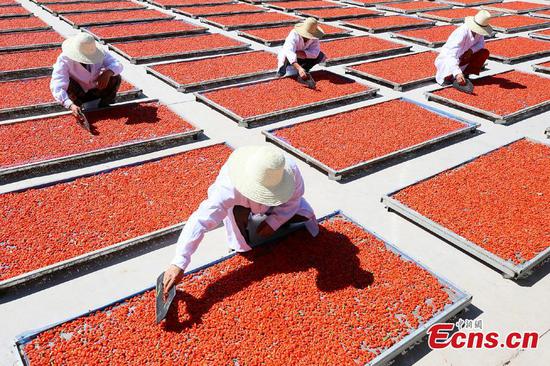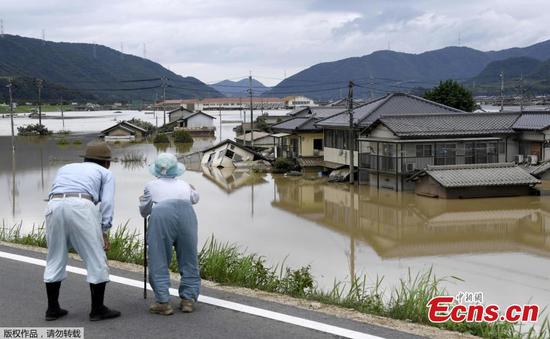Wheat farmers in the U.S. state of Montana called on the Trump administration to reach agreements with trade partners in a short term and avoid a muti-fronts trade war to protect sustainability of the state's grains industry.
"I think we need to be sitting at the table, talking about it and trying to work out an agreement," John Youngberg, the executive vice president of Montana Farm Bureau told Xinhua on Tuesday.
The expert in wheat industry spoke about how to resolve trade disputes between the United States and its trade partners.
"You know we've heard that we don't need ministration, somebody doesn't want to be part of a multilateral agreement, well then bilateral agreements need to be worked on and we're not working on bilateral agreements with anybody right now," Youngberg said.
According to the U.S. Department of Agriculture, Montana was America's third-largest wheat producing state in 2017 behind North Dakota and Kansas.
Yongberg's remarks were echoed by Lola Raska, the executive vice president of the Montana Grain Growers Association, who said that trade agreements with other countries are important for U.S. wheat farmers, and even the bilateral agreement that she dose not like is better than nothing or a trade war.
"But some of the countries that were interested in creating bilateral (agreement) with us are getting a little more reluctant to deal with us because of the uncertainty of what's going on right now," she said.
"It is possibly creating more harm than good in the long term," she said.
Collin Watters, the executive vice president of the Montana Wheat and Barley Committee, published a commentary on the local Billings Gazette newspaper Monday, warning "we may soon find ourselves on the losing end" in trade wars ignited by the White House from early this year, since strong agreements supporting trade partnerships have been a bulwark against the volatility of the market.
In the article "Opinion: Montana farmers need trade agreement," Watters called on the U.S. government to help wheat industry to maintain existing markets and capture share in emerging growth markets.
"Investments in developing these markets must be supported and facilitated by expanding trade agreements," he said.














